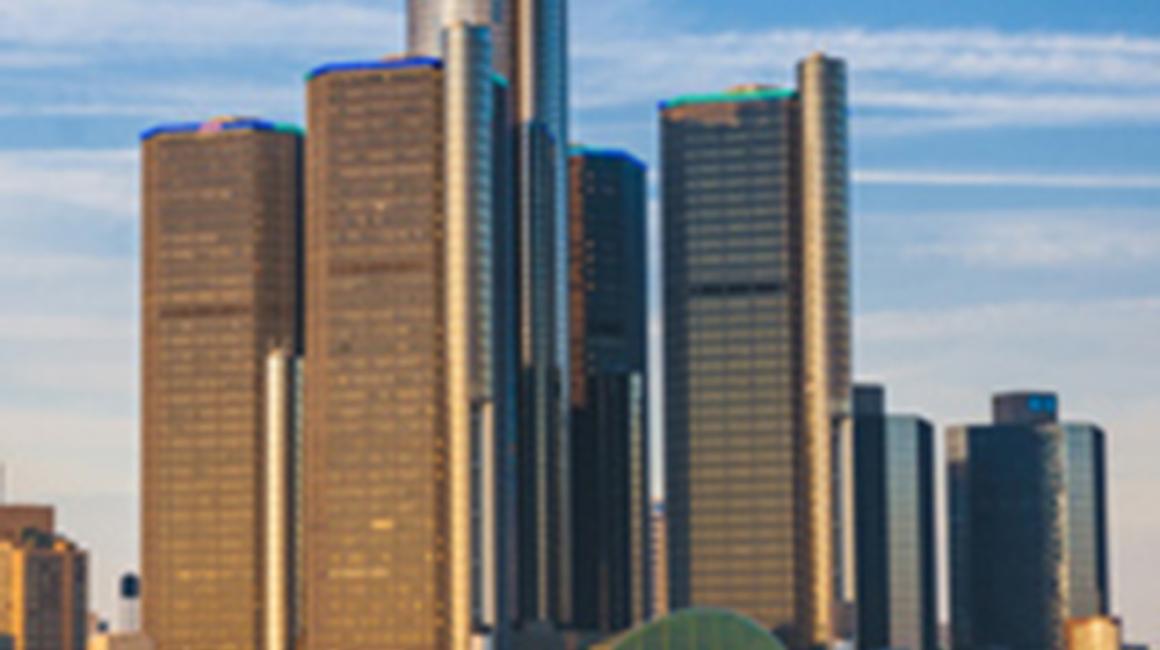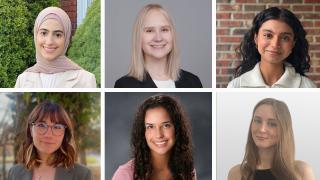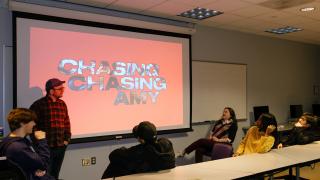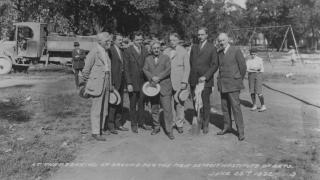
Tuqa Alfatlawi had heard the statistics before. She was well aware of the failing schools, the crumbling infrastructure and the crime. And she knew Detroit had become a bit of a national punch line.
But she wanted to know more; she wanted to know why Detroit was the way it was.
“I was interested in learning more about the culture of Detroit and how it came to be,” she said. “We see problems today but we don’t know where they originated.”
Alfatlawi, a psychology student, is one of 16 students enrolled in University of Michigan-Dearborn’s Urban and Metropolitan Politics course this semester. The course gives an overview of city and suburban politics, focusing largely on the challenges and opportunities of Detroit and southeast Michigan.
Last week, students in the class presented at the Michigan Student Political Issues Convention, a day-long event to discuss issues and vote on the most pressing concerns. Alfatlawi and her group covered Detroit’s water system and the recent need to create a regional water authority. Others discussed mass transit, segregation and education, and the region’s rundown roads.
“Most of these students are from the region and they care deeply about the city and the metropolitan area,” said Lara Rusch, assistant professor of political science. “I want them to not only understand the different structures of local government, but also reflect on their role within the region.”
Because the course is one of UM-Dearborn’s Academic Service Learning courses, students combined what they were learning in class with community service and engagement hours outside of class. For many, Rusch noted, this was an opportunity to leave their comfort zones.
That was the case for Elizabeth Kubera, a liberal studies student. Kubera volunteered for Detroit Action Commonwealth and helped Detroit residents apply for state-issued identifications.
“You don’t know what you’re getting yourself into those first couple of days,” Kubera said. “You start to realize how complicated it is just to get an ID and think maybe there needs to be some reform.”
Both Kubera and Alfatlawi—who volunteered with the League of Women Voters—said their time in class encouraged them to become more politically active within the community. And that’s one lesson Rusch hopes sticks with them long past their final exams.
“As students, many feel the political system seems distant. I don’t want them to leave the university with that feeling,” Rusch said. “They’re learning about real issues and learning there are real people they can relate to and work with on these issues.”





